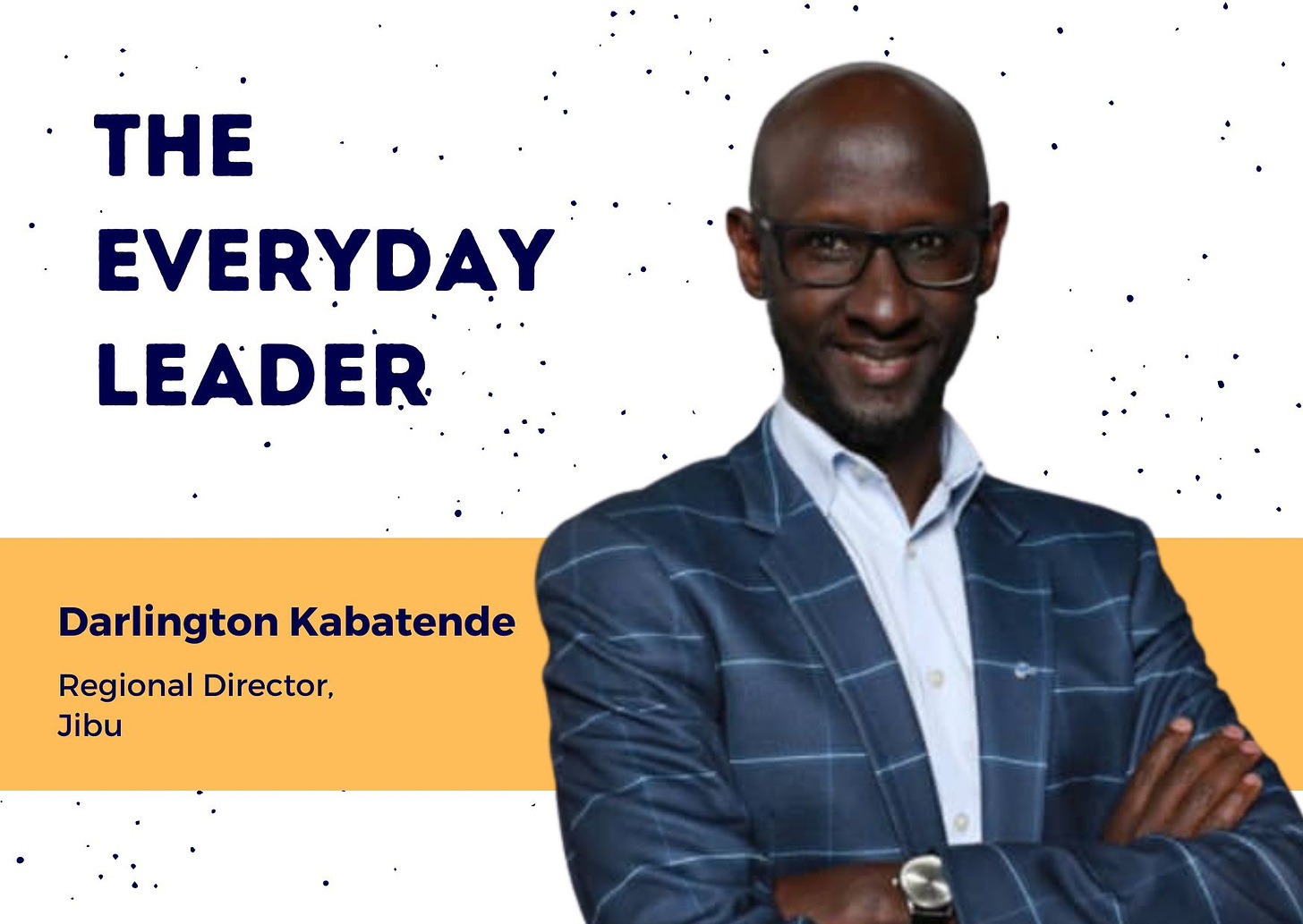Hi everyone, here’s what we have for you this week:
How do you shift from individual contributor to people manager? In this week’s episode of The Everyday Leader, Darlington Kabatende from Jibu speaks about his experience building a sales team around him.
Managing former peers can sometimes be awkward. We share learnings from managers about about how they balanced changes in their professional relationships.
We’re hosting an information session about our Peer Coaching Network. It’s not too late to RSVP via our LinkedIn event page.
Read on for more details…
Shifting from individual contributor to people manager, building win-win relationships with franchise owners, and empowering local leaders to adapt business models
Here are a few highlights from the conversation with Darlington:
Shifting from individual contributor to people manager requires that you pass on some of your skills to others: Early in his career, Darlington identified and developed his skills in sales while pursuing a side hustle. He eventually brought this skill into his full-time role. When he was then given an opportunity to manage a team, he found himself needing to develop others through training and shadowing. While he was talented at sales himself, he knew the only the way his responsibilities and impact were to grow was if he upskilled the team under him. During this transition, he learned to identify the strengths and weaknesses of team members, putting them in roles that leverage their strengths, and accepting that some people will inevitably drop off if they can’t keep up along the way.
Build win-win relationships with franchise owners by aligning expectations and incentives: Jibu operates a franchise model that empowers local entrepreneurs to run branded water and product distribution outlets. In his role, Darlington is charged with making sure all of their franchises are thriving, but also finds himself needing to hold them accountable to brand standards and financial goals. Their use of an agreement to help guide and manage the relationship has been crucial. So has careful screening of prospective franchise owners to ensure the right entrepreneurial yet humble mindset.
Empower local leaders to adapt business models to their context: Darlington has overseen Jibu’s operations across a number of countries. In this role, he must balance leveraging the company’s learnings and best practices while also adjusting their model to local context. They do this by empowering local entrepreneurs and spending considerable time working alongside them to ensure that all of the relevant best practices are effectively carried over.
How to Manage Former Peers
Many managers find themselves, as a result of a promotion or reorganization, needing to directly manage individuals that they have already developed a personal friendship with. You don’t want your friends to feel that they might get special treatment because of your existing relationship. Here are tips from three managers across Africa:
Clearly document deliverables and deadlines: Chilekwa Banda from Zambia once found herself managing staff who were friends and she faced the almost inevitable case one of her friends missed a work deadline. When her friend claimed that she didn’t understand the deliverable, she decided at first not to give strong feedback to her friend. But later when this missed deadline raised alarms at a more senior leadership level, Chilekwa herself was made accountable, which caused her to hold a grudge against her friend for some time. As a result, Chilekwa has made an effort to more clearly document details in order to hold all of her team members accountable.
Don’t short-change them on important feedback: Often managers will overcompensate in their intention to seem impartial and end up not giving enough important feedback and guidance to the friends they manage, which ultimately is a disservice to them. Keep the communication lines open as you would with any direct report. As a leader, your team will expect you to play an active role in their professional development, hence open communication with you and your team is paramount. As you give feedback, make sure it is clear, honest, and constructive. When Chris Rumenda from Kenya first took on a team leadership role while at Jumia Kenya, he found himself directly supervising several team members that he already considered close friends. In order to prevent bias and cause perceptions of favoritism, he listened closely for related feedback that came up in performance reviews and began taking more time to clearly document important feedback early on with his team members. By providing all of his team members with frequent feedback, both positive and constructive, there was less room for the risk of misinterpretation and doubts.
Make it clear how decision-making power has changed: Often when you are promoted, you now hold greater decision-making responsibility. While previously you may have had an equal voice with peers, you may now have the ultimate say on specific types of decisions and this should be made clear to avoid confusion or endless debates. When founding his first startup, Matthew Henshall from South Africa had several other co-founders whom he considered more technically advanced. It was for this reason that he volunteered himself to figure out the business side of things. His co-founders embraced this and he shares a story of a particular case early on where there was a disagreement around a decision that needed to be made. One of his co-founders told him that he needed to be the one to make the final call, and that they would rally behind the decision together. He found this very humbling as it made him realize that he needed to make a smart decision that will be the right one for the team and to set up the business for success.
Info Session: Peer Coaching Network
Join us for an informational session about CoffeeChat's fast-growing Peer Coaching Network this Wednesday, 27 July at 6:00pm EAT. RSVP on our LinkedIn event page and we will send you the link to join the webinar ahead of the call.
Whether you're interested in joining yourself or signing up your team, this webinar will be a perfect opportunity to learn more and ask questions. If you already want to get started, apply to join here: https://www.coffeechat.co/#apply
Launched at the start of 2022, the CoffeeChat Peer Coaching Network already includes managers from over 100 companies working across Africa. Membership is limited to individuals who hold a management role at a company or organization with an operational footprint in an African market. Participants first engage in a self-paced e-learning module and comprehension quiz that introduces the principles of peer coaching and how to use the GROW model.
Upon completion of this training, participants are matched monthly with managers from different companies with similar experience levels to both provide and receive peer coaching over a two-way, 1-hour call. Through these calls, managers practice and hone a range of skills relevant to coaching their own teams, including active listening and crafting powerful questions. Participants also benefit from high-impact networking as they engage with emerging leaders working at interesting organizations and discover new strategies for their key challenges from others in different industries.
CoffeeChat is working with Credly, the digital credentialing leader, to provide digital badges. For more information about CoffeeChat’s digital credential program, visit https://www.credly.com/organizations/coffeechat/badges





